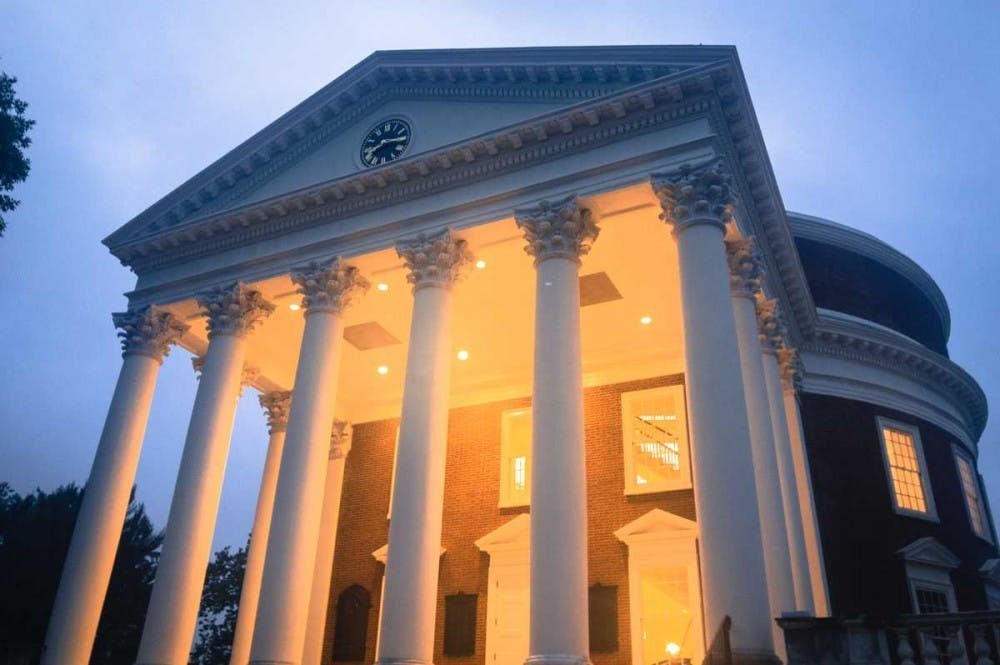The Luce/American Council of Learned Societies Program in Religion, Journalism & International Affairs hosted a virtual panel Tuesday featuring author and professor Dr. Anthea Butler and a discussion of her new book “White Evangelical Racism: The Politics of Morality in America,” which focuses on how racism is at the center of conservative evangelicals' power and activism.
Butler is an associate professor of religious studies and Africana studies and serves as interim chair for the department of religious studies at the University of Pennsylvania. Her book was first published in March and focuses on the powerful role white evangelicals have played in the polarization of American politics.
The panel was moderated by Corey D. B. Walker, the Wake Forest Professor of Humanities at Wake Forest University. Larycia Hawkins, assistant professor of politics and religious studies, and Religious Studies Prof. Charles Mathewes completed the panel.
The event began with an introduction from Walker followed by Butler's thoughts on her book and why she chose to write it. Hawkins and Mathewes were then given a chance to discuss the book’s content, and the event concluded with questions from the audience.
“The beautiful thing about Anthea’s book is that it seeks to open up a conversation — a conversation about the very nature of our nation and our identity in light of these very fraught times,” Walker said.
According to Butler, the main purpose of her book is to show evangelicals — members of the evangelical tradition of the Christian Church, which stresses the preachings of the Gospel and faith in Jesus Christ — how this theology is synonymous with being white and the historical tie between evangelicalism and white supremacy.
As someone who previously identified as evangelical and spent time at an evangelical seminary, Butler has learned first hand how evangelicals are united through racism in their social and political action. She noted that when evangelicals say that “they do not see color, they see what Jesus sees in you,” they are actually just seeing members as white and expecting them to follow white cultural norms.
She asks that evangelicals read the book and ask themselves honestly if they want to be a member of the denomination.
“Because [evangelicals] are being selfish and because they don’t care, their racism, their sexism, their homophobia, their lack of belief in science and lack of belief in common sense may end up killing us all,” Butler said. “I would ask anyone who is evangelical today to get this book, to read it, to share it with yourself and to ask yourself if you want to be a part of this.”
Although she strived to not center her book around former President Donald Trump, Butler wanted to answer the larger question of why white evangelicals overwhelmingly supported him as a candidate given that evangelicals historically have considered the morality of politicians to be greatly important. As Mathewes noted, white evangelicals went from the group that was most likely to say morality mattered in a political candidate in years prior to Trump’s election to the group that was the least likely to say morality mattered in 2016. This reality contributed to 81 percent of white evangelicals supporting him during his reelection run in 2020 despite the fact that he had been divorced two times, accused of committing sexual assault and regularly used rhetoric steeped in racism.
“[White evangelicals] don’t give a damn about any morality that any politician has,” Butler said. “If you can pick Trump you can pick anybody. If Satan decided to run for president in 2024, I am sure if he promised them something that they will probably vote for him.”
According to Matthewes, there were two main takeaways he hoped were seen through the event. First, that the white evangelicals listening would see how their theology is interwoven with practices that encourage racial division, and second, that non-white evangelicals discover a deeper awareness of the connection between religious beliefs and racial views.
“The stakes for what we are talking about here are huge,” Mathewes said. “Never before has our species managed to accommodate differences the way we are asking ourselves to accommodate differences now. I just think it’s important for people to understand how hard this is and how no one has a map.”
Further, Hawkins hoped that listeners understood the consequential impacts that white evangelicalism has had on the foundation of America and American institutions. Specifically, she asserts that American politics are built around the white supremacist, moralistic view that in order to be a good person one must be white, a good christian and have a traditional family structure.
Both Matthewes and Hawkins noted that despite the success of the event — which saw over 200 participants — they felt constrained by the time limit of one hour. Additionally, panelists appreciated the online environment’s opportunity to allow people from all over the country to join the conversation.
As part of the University’s on-going series entitled “Informed Perspectives,” the event sought to bring together “scholars, journalists and documentarians to explore the relationship between religion, race and politics.” The series will culminate next week with the final webinar “Informed Perspective: Indigeneity Framed” featuring filmmakers Ángeles Cruz and Federico Cuatlacuatl.





